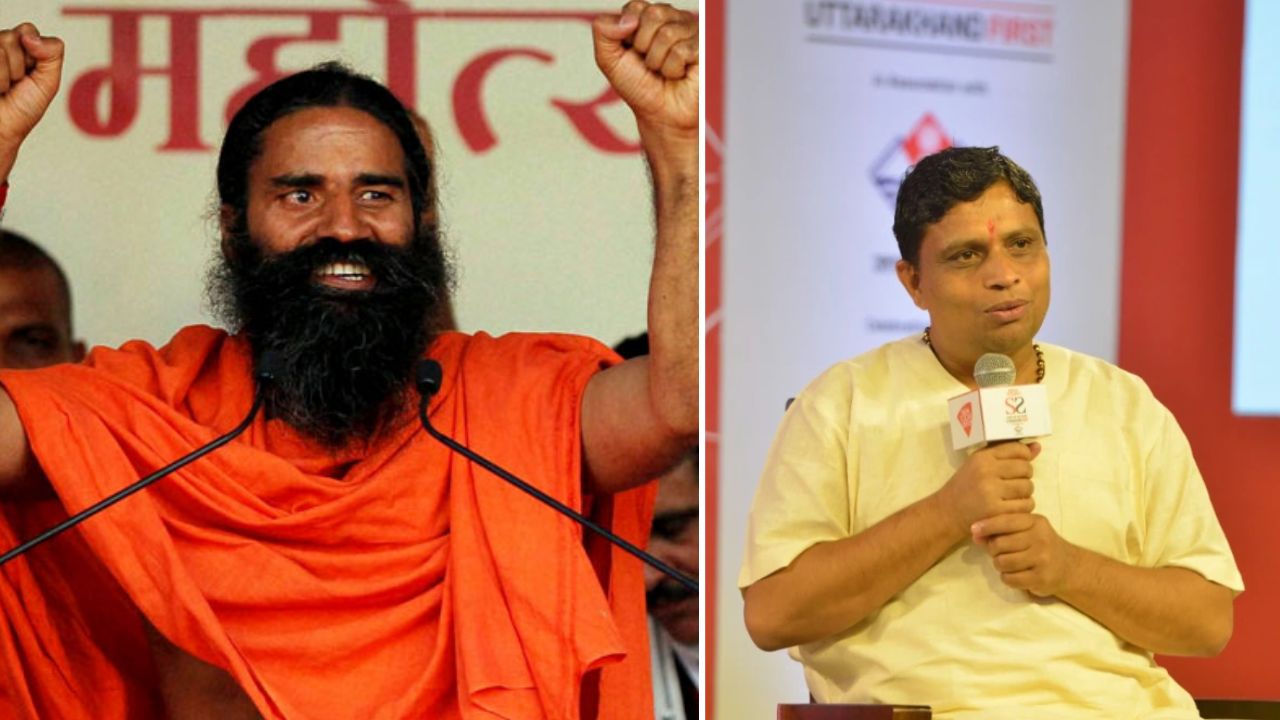Baba Ramdev's remarkable financial success – let's delve into how Baba Ramdev utilizes his earnings and examine the financial performance of Patanjali Ayurved and Ruchi Soya.
Once a renowned yoga guru, Baba Ramdev is now a household name in India. His campaigns against corruption and promotion of yoga have solidified his status. From advocating for indigenous products to establishing the Patanjali Yogpeeth and Patanjali Ayurved, Baba Ramdev's journey has been remarkable, transforming from a yoga guru to the founder of a successful enterprise like Patanjali. This article explores Baba Ramdev, Patanjali Ayurved, and Ruchi Soya in detail.
The debate between allopathic and Ayurvedic medicine is not new in our country. Baba Ramdev has not only promoted indigenous herbal remedies but also raised awareness about several readily available yet lesser-known items with extensive benefits. He highlighted the fact that thousands of doctors prescribe Tulsi and Giloy.
Patanjali Yogpeeth Trust – Wikipedia
Ruchi Soya and Patanjali together have a combined turnover of ₹25,000 crore. This revenue is consistently used for philanthropic activities.
Patanjali Ayurved's Earnings:
Patanjali Ayurved performed well during the financial year 2019-20. According to Tofler, a business intelligence platform, the company's profit increased by 21% to ₹425 crore in the fiscal year 2019-20. The Ayurvedic medicine and FMCG goods company had earned ₹349 crore in profit in FY 2018-19. Meanwhile, Patanjali's revenue increased by 5.9% to ₹9,023 crore during the same period, compared to ₹8,523 crore in FY 2018-19.
In the fiscal year ending March 2016, the company's revenue reached ₹4,800 crore, a 139% increase year-on-year, while profit reached ₹772 crore, a 150% increase. Fiscal year 2017 saw an 86% increase in revenue and a 54% increase in profit. Businesses like biscuits, noodles, dairy, solar panels, apparel, and transportation are not under Patanjali Ayurved; they operate under a separate entity.
In December 2021, Patanjali acquired the bankrupt Ruchi Soya for ₹4,350 crore. Ruchi Soya produces soya foods under the Nutral brand. Patanjali took on ₹3,200 crore in debt to acquire Ruchi Soya, securing funding from SBI (₹1,200 crore), Syndicate Bank (₹400 crore), Punjab National Bank (₹700 crore), Union Bank of India (₹600 crore), and Allahabad Bank (₹300 crore). In the fiscal year 2019-20, Ruchi Soya's manufacturing facilities spanned 22 locations across the country, including prominent cities such as Chennai, Pune, Kota, Haldia, Jammu, Durgavati, Mangalore, Nagpur, Rudaki, and Sri Ganganagar. The company is one of the largest soy product producers in India. Its key brands include Nutral, Mahakosh, Ruchi Gold, Ruchi Star, and Sanrich.

Ruchi Soya's Earnings:
In February 2021, the company announced its October-December quarter results. During this period, Ruchi Soya reported a profit of ₹227 crore. Revenue increased from ₹3,725 crore to ₹4,475 crore. Ruchi Soya's revenue in 2020 was ₹13,175 crore. For the first nine months of FY 2021, total revenue was ₹11,480 crore. Patanjali Group holds 98.90% of Ruchi Soya shares, with Patanjali Ayurved Ltd. owning 48.7% directly, and the rest held by Divya Yog Mandir Trust and Patanjali's subsidiary companies.
How Patanjali Began:
According to a story published in the Hindi magazine Outlook, Patanjali was registered as a company in 1995. Baba Ramdev and his associate, Acharya Balkrishna, registered Patanjali for just ₹13,000, having only ₹3,500. They managed to pay the registration fees through loans from friends. Baba Ramdev, in a TV interview, mentioned that he used to organize around fifty yoga camps annually across Haryana and Rajasthan. He was often seen on the streets of Haridwar riding his scooter during this time.
In 2002, due to Guru Shankardev's deteriorating health, Baba Ramdev became the face of the Divya Yog Trust, while his friend Balkrishna took charge of the trust's finances, and Karmaveer was appointed as the trust's administrator. Since then, these three friends from the Gurukul era have been expanding the Patanjali Yogpeeth's financial empire. Baba Ramdev, under the banner of Divya Yog Trust in Haridwar, vigorously organized yoga camps in India and abroad. Beginning in the villages of Haryana, this teaching journey extended to Gujarat, Delhi, and eventually Mumbai.














